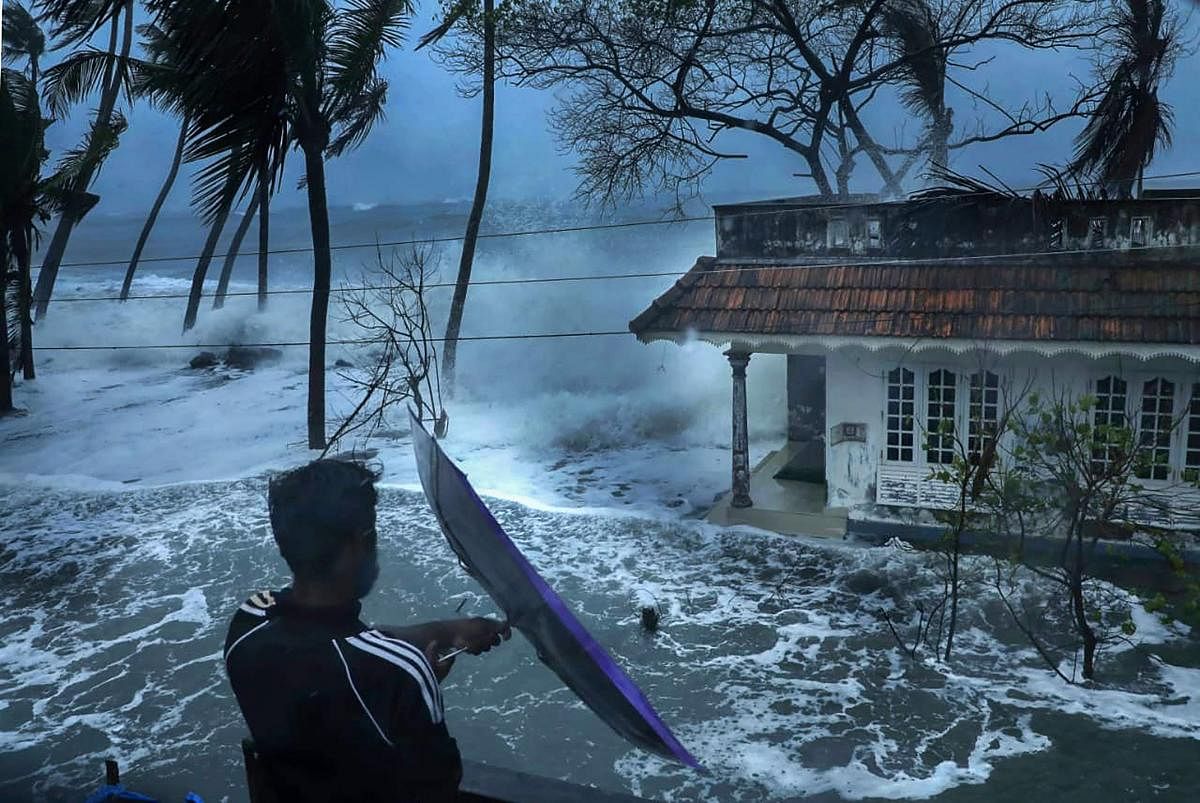
The third visitation of devastating floods in four years in Kerala has made it clear that the natural catastrophe has become the rule rather than the exception in the state. Errant rains, landslides and resulting floods have taken a large toll of lives and caused much damage to property. Houses, roads and other constructions have been washed away, crops have been damaged, and there is threat to more areas. While the major flood of 2018 affected most areas of the state, much of the present catastrophe has occurred in the high ranges of the central districts. Landslides have washed away houses, rivers have drowned villages, and towns and lives have been completely turned upside down. Though there is a pause in the past two days, the rains are expected to resume later this week.
It is wrong to look at the spurt in rains as the parting kick of a retreating monsoon. There are several explanations for the aggravated rain conditions. There are meteorological explanations like the occurrence of cloudbursts, cyclonic conditions in the Arabian Sea and simply the waywardness of weather. While there may be truth in these, the bigger truth is that the disaster is more man-made than natural. Extreme weather events are caused by climate change, their impact is magnified by human interventions in environment. It is the higher altitudes of the state in the Western Ghats where large-scale destruction of nature took place in the last many decades that are bearing the brunt of the disaster. The clearing of forests for habitation, building of villages and towns, operation of quarries and other similar activities have put severe pressure on nature all over the high ranges.
There have been ample warnings about the catastrophe. The Madhav Gadgil Commission of 2011, which studied the ecology of the Ghats, noted their perilous condition and made several recommendations to stop or contain the damage. The Western Ghats have a fragile ecosystem that is under threat in all the states they straddle, including Karnataka, Goa and Maharashtra. No state has taken the recommendations seriously and the rampage on nature has continued. The Gadgil Commission recommendations were diluted by the Kasturirangan Commission, and still later by yet another commission. It is all the water that has gone into diluting the Gadgil Commission report that has now come back with a vengeance to drown large parts of the state. If the right lessons are not learnt from the disaster and remedial action taken, it can only get worse in the coming years. The remedy may be painful now but avoiding it will cause more pain later. All other states on the Ghats should also heed the warning from Kerala.